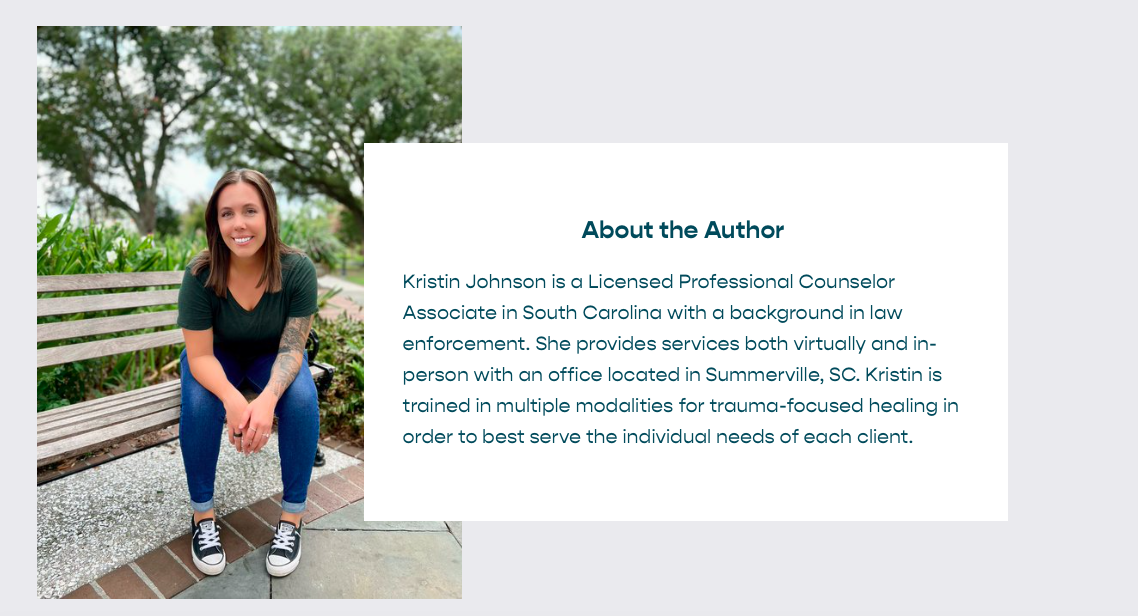Trauma Therapy: Recognizing the Signs of Unresolved Trauma
Most people think of trauma as something that only applies to people in certain professions (like the military or first responders), or very specific situations like abuse, car accidents, and natural disasters. But the truth is, trauma comes in many forms, and unresolved trauma can quietly impact your life in ways you may not even recognize.
Maybe you’ve always been anxious but never understood why. Maybe you find yourself avoiding certain places, people, or conversations without realizing it's connected to something deeper. Maybe your body reacts before your brain can even catch up—tight chest, racing thoughts, overwhelming panic.
If any of this sounds familiar, your mind and body might be carrying trauma that hasn’t been fully processed. And the longer it goes unaddressed, the more it can impact your mental health, relationships, and overall well-being.
Let’s talk about the signs of unresolved trauma, how it manifests, and why trauma therapy can help.
What Is Unresolved Trauma?
Unresolved trauma refers to psychological wounds that haven’t fully healed. It’s not just about what happened to you, it’s about how your mind and body are still responding to it.
Trauma can be caused by:
Big “T” Trauma – things like abuse, violence, serious accidents, or near-death experiences.
Little “t” Trauma – ongoing stressors like childhood neglect, emotionally unavailable parents, toxic relationships, or bullying.
Your brain doesn’t always differentiate between the two. If your nervous system felt overwhelmed, unsafe, or powerless at the time, the impact of that experience can linger, sometimes for years.
Signs of Unresolved Trauma
Trauma symptoms don’t always show up in obvious ways. Sometimes, it looks like anxiety, depression, or difficulty trusting people. Other times, it’s hidden in self-sabotage, perfectionism, or that nagging feeling that something is “off.”
Here are some of the most common signs that unresolved trauma might be affecting you:
1. You Overreact (or Underreact) to Situations
If small things trigger big emotional responses, like intense anger, panic, or shutdown, it could be your nervous system reacting to something deeper. On the other hand, if you feel numb or detached in situations where most people would have a strong reaction, you may have learned to suppress your emotions as a coping mechanism.
2. You Struggle with Trust and Connection
Unresolved trauma can make it hard to trust others, even if there’s no logical reason. You might keep people at arm’s length, struggle with vulnerability, or constantly fear being abandoned or hurt.
3. You Have Anxiety, Hypervigilance, or a Constant Feeling of "Waiting for the Other Shoe to Drop"
If your body is always on high alert (scanning for danger, anticipating worst-case scenarios, or feeling on edge) it’s a sign that your nervous system is still stuck in survival mode. This can look like:
Difficulty relaxing
Trouble sleeping or frequent nightmares
Startling easily at loud noises
Chronic worry that something bad is about to happen
4. You Feel Disconnected from Yourself
Ever feel like you’re just going through the motions? Unresolved trauma can create a sense of emotional numbness, making it hard to connect with your own feelings or even recognize what you need.
5. You Engage in Self-Sabotaging Behaviors
Trauma can lead to self-destructive patterns, like:
People-pleasing to avoid conflict
Perfectionism because failure feels intolerable
Avoidance behaviors (avoiding certain places, people, or topics that remind you of past pain)
Unhealthy coping mechanisms (like drinking alcohol, emotional eating, or excessive work habits)
6. You Struggle with Flashbacks or Intrusive Thoughts
You might not “remember” everything, but your body and brain do. Flashbacks, intrusive memories, or sudden waves of emotion that don’t seem to match the present moment could be signs of unresolved trauma resurfacing.
7. Your Body Holds the Stress
Trauma doesn’t just live in the mind, it lives in the body too. You may experience:
Chronic headaches or migraines
Muscle tension, especially in the neck and shoulders
Digestive issues (like IBS or nausea)
Unexplained chronic pain or fatigue
If doctors have told you your symptoms are “just stress,” but nothing seems to help, your body might be holding onto trauma in ways you didn’t realize.
How Trauma Therapy Can Help
If any of this resonates, therapy can help you understand, process, and heal. Trauma therapy isn’t about dwelling on the past, it’s about helping you feel safe in the present.
Through evidence-based approaches like Eye Movement Desensitization and Reprocessing (EMDR), Cognitive Behavioral Therapy (CBT), and Emotionally Focused Individual Therapy (EFIT), you can:
Rewire your brain’s response to triggers so you don’t have to live in survival mode.
Process trauma in a way that feels safe and manageable—without reliving it.
Develop coping tools to manage anxiety, flashbacks, and emotional overwhelm.
Reconnect with yourself so you can feel fully present in your own life again.
You Don’t Have to Do This Alone
If you’ve been struggling with anxiety, emotional overwhelm, or unexplained stress that won’t go away, it might be time to explore trauma therapy. You don’t have to keep carrying this alone.
Schedule a free phone consultation today, and let’s talk about how we can help you feel safe, supported, and in control of your own life again.
Looking to connect with a trauma therapist?
Take the first step towards processing your unresolved trauma.
(South Carolina residents only)


